A Landmark Trial
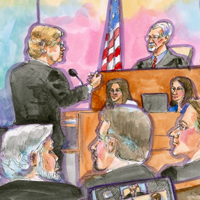 Until January 11, 2010, no federal court had ever considered whether gay and lesbian Americans have the freedom to marry. Never before had evidence been presented in a federal court to refute the claim that a personŌĆÖs sexual orientation should define whether he or she could marry.
Until January 11, 2010, no federal court had ever considered whether gay and lesbian Americans have the freedom to marry. Never before had evidence been presented in a federal court to refute the claim that a personŌĆÖs sexual orientation should define whether he or she could marry.
This is exactly the question that was considered by the Federal District Court:┬ĀWhether the State can deny rights to some Americans based solely on who those people wish to marry. During twelve-days of trial proceedings, Ted Olson and David Boies built an airtight case rooted in constitutional principles that clearly showed Proposition 8 was based on nothing more than prejudice and discrimination.
Next: Prop. 8 Ruled Unconstitutional >
Under Oath
The AFER team presented 17 witnesses.┬Ā Nine leading experts gave cultural, historical, economic, psychological and sociological testimony about marriage equality.┬Ā The plaintiffs testified to the harm inflicted by Prop. 8 and the anguish they endure in their daily lives.
Only two witnesses were willing to testify for the anti-marriage proponents. The court, examining their qualifications, deemed their testimony worthy of little to no weight.
Witness Testimony
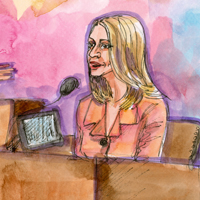 Sandy Stier, Plaintiff:
Sandy Stier, Plaintiff:
“I’m just trying to get the rights that the Constitution already says I have.”
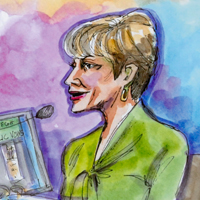 Dr. Nancy Cott, Professor of American History, Harvard University:
Dr. Nancy Cott, Professor of American History, Harvard University:
“The institution of marriage has always been at least as much about supporting adults as it has been about supporting minors, children, as the proponents tend to emphasize the child’s side.”
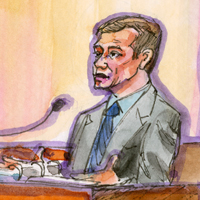 Dr. Ilan H. Meyer, Professor of Clinical Sociomedical Sciences, Columbia University:
Dr. Ilan H. Meyer, Professor of Clinical Sociomedical Sciences, Columbia University:
“I don’t know if [domestic partnership] has any social meaning. … It is, I think, quite clear that young children do not aspire to become domestic partners. But, certainly, the word ‘marriage’ is something that many people aspire to.”
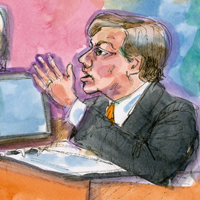 David Blankenhorn, Founder and President, Institute for American Values, witness called by Prop. 8 Proponents:
David Blankenhorn, Founder and President, Institute for American Values, witness called by Prop. 8 Proponents:
“Gay marriage would be a victory for the worthy ideas of tolerance and inclusion. It would likely decrease the number of those in society who tend to be viewed warily as ŌĆśotherŌĆÖ and increase the number who are accepted as part of ŌĆśus.ŌĆÖ In that respect, gay marriage would be a victory for, and another key expansion of, the American idea.ŌĆØ







